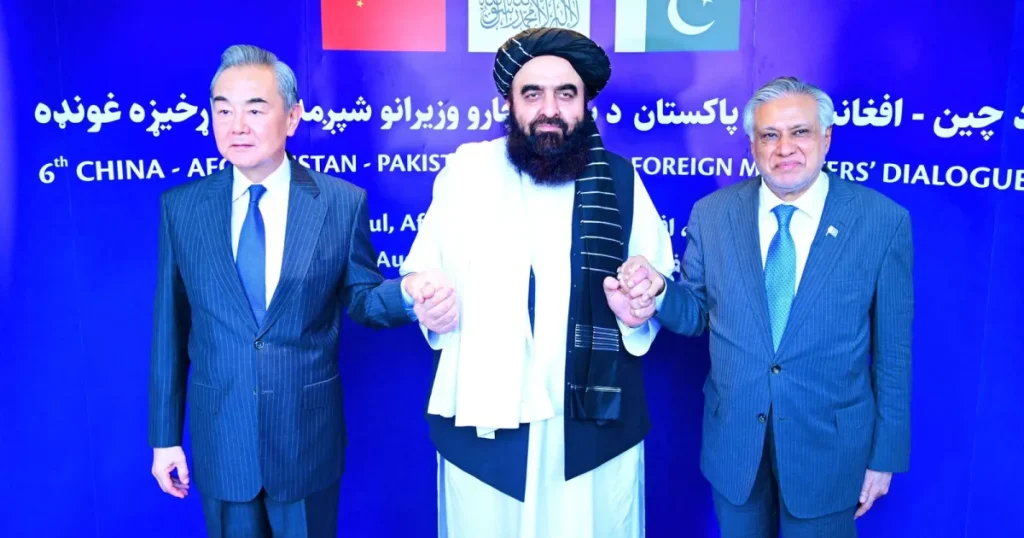The recent trilateral dialogue between China, Pakistan, and Afghanistan has set the stage for a major geopolitical shift in South and Central Asia. At the heart of these talks lies the ambitious plan to expand the China-Pakistan Economic Corridor (CPEC) into Afghanistan — a move with vast implications for trade, security, and global diplomacy.
CPEC and the Regional Vision
CPEC, a flagship project under China’s Belt and Road Initiative (BRI), has already transformed Pakistan’s infrastructure through highways, energy plants, and port development. Extending it into Afghanistan offers the potential to connect landlocked Central Asia with Gwadar Port, providing a direct trade route to the Arabian Sea.
For Afghanistan, plagued by decades of war and economic isolation, this integration could unlock foreign investment, job creation, and much-needed revenue. For Pakistan, the project strengthens its role as a regional trade hub, while China secures greater influence in a strategically sensitive region.
Security Challenges
Despite its promise, the expansion of CPEC faces formidable obstacles. Afghanistan’s volatile security environment remains a major concern. Militant attacks on infrastructure and foreign workers in both Pakistan and Afghanistan highlight the risks involved.
China has already pressed both governments to guarantee the safety of Chinese engineers and investors, a condition without which large-scale projects cannot proceed. The trilateral talks therefore placed a strong emphasis on counterterrorism cooperation and border stability.
Geopolitical Implications
The CPEC expansion is more than an economic project — it is a geopolitical chess move.
- For China: It strengthens Beijing’s foothold in South Asia while reducing reliance on the Strait of Malacca by opening an alternate trade route.
- For Pakistan: It cements its strategic partnership with China while boosting economic growth.
- For Afghanistan: It signals a shift from dependency on Western aid to regional integration with Asian partners.
However, the U.S. and India are watching cautiously. Washington sees China’s growing presence as a challenge to American influence, while New Delhi fears that CPEC passing through disputed Kashmir undermines its sovereignty.
Economic Opportunities
If implemented successfully, CPEC expansion could bring:
- New rail and road networks linking Kabul to Gwadar.
- Energy projects to ease Afghanistan’s chronic power shortages.
- Special economic zones to attract manufacturing and exports.
- Cross-border trade corridors boosting Pakistan-Afghanistan bilateral commerce.
Regional analysts argue that such development could act as a stabilizing factor in Afghanistan by creating jobs and reducing reliance on illicit economies.
The Road Ahead
The trilateral talks concluded with promises but no timelines, reflecting both optimism and caution. The next steps involve feasibility studies, financing agreements, and above all, ensuring stability in Afghanistan.
For the people of South Asia, the CPEC expansion could mean greater connectivity, economic prosperity, and a stronger voice in global trade. Yet, without addressing the challenges of security and political trust, this vision may remain trapped on paper.
